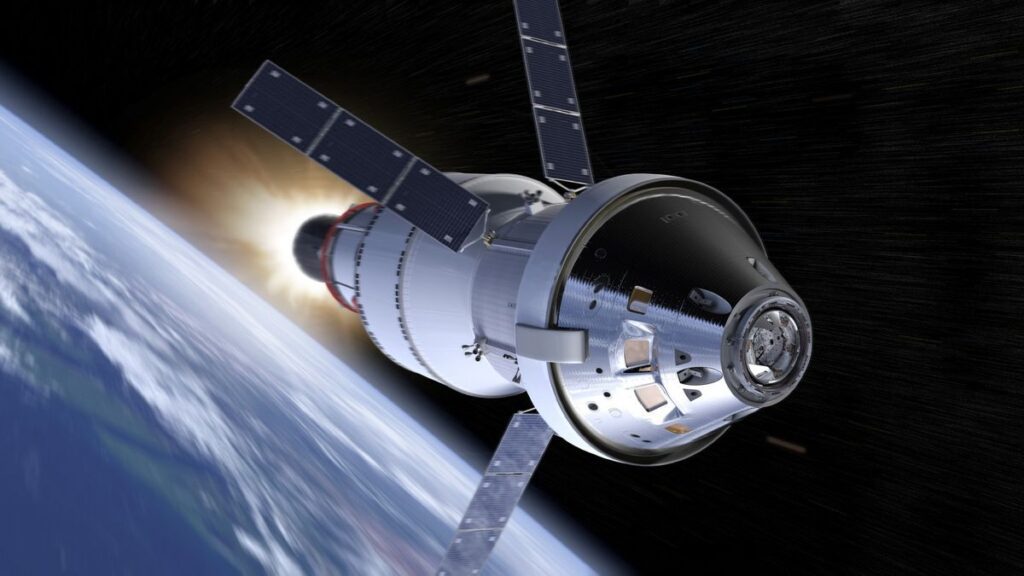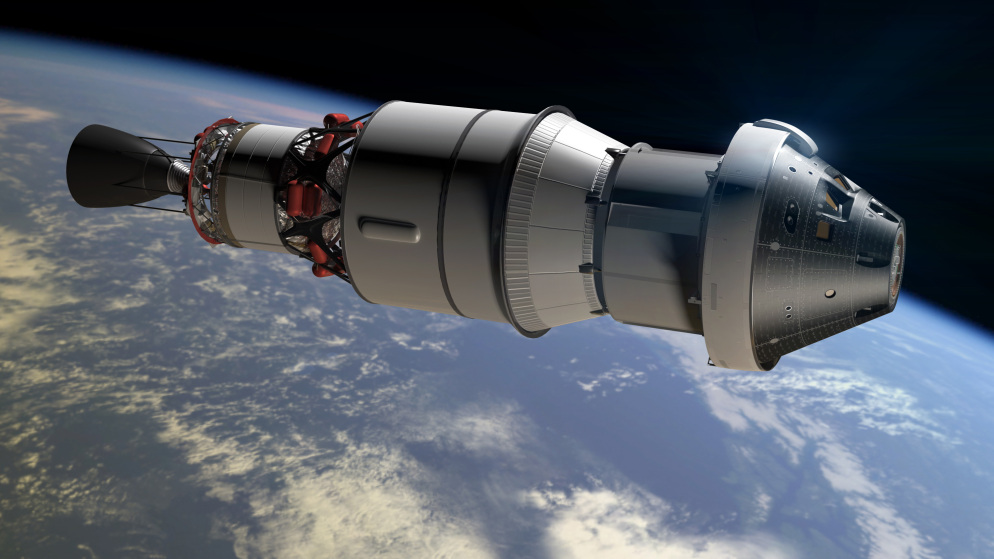Do you love the stars and moon? If yes…have you ever thought about exploring space? Here is the ultimate spacecraft comparison of Orion Spacecraft vs Starliner.
Nasa manufactured many space exploration capsules. The most famous are the Orion spacecraft and the Boeing Starliner. These spacecraft play an important role in space exploration and missions. Also, the two spacecraft have many specific features.
In this article, you’ll learn about everything important in space exploration spacecraft. Also, the pros and cons will be shared in the end.
So, let’s get started with a detailed overview of Orion Spacecraft and Starliner.

Overview: Orion Spacecraft vs Starliner
Nasa launched its excellent deep spacecraft, Orion Spacecraft, in 2014. This was part of a NASA program known as the Artemis Program.
The mission of the spacecraft includes taking astronauts beyond the Earth. Thus, this spaceship can take people toward the Moon, Mars, and other deep space destinations. In addition, it can accommodate up to six people in it.
In contrast, NASA launched an amazing spacecraft in 2024 which is Spacecraft Starliner. This is a part of the NASA Commercial Crew Program.
Among Orion Spacecraft vs Starliner, there is a difference of mission. Starliner works best for the mission of taking people in space beyond Earth. Also, it takes people back to Earth safely.
Moreover, Starliner can accommodate six or seven members for twenty-one days. This spacecraft is mostly useful for short-term visits.
Key Differences: Orion Spacecraft vs Starliner
1. Price and Cost: Which Spacecraft is more expensive?
Orion Spacecraft is a part of NASA’s broader Artemis program, which sends astronauts back to the Moon and beyond. Therefore, they are very expensive and one mission ranges from $1 billion to $2 billion. Moreover, this is not a fixed cost. The cost may vary based on the complex and simple missions.
Boeing Starliner is a cost-effective solution for low Earth orbit missions. These aircraft are mainly useful for taking people to and from international space stations.
So, if you want to explore the space, then the total price for one seat will be $90 million, although it is still costly. But it is less costly than the Orion Spacecraft.
2. Mission Purpose and Range: Orion Spacecraft vs Starliner
Orion Spacecraft is useful for deep-space missions like traveling to the Moon, Mars, and other places beyond low Earth orbit.
Thus, the Orion spacecraft is best for deep space missions. The reason is it very long range. This spacecraft is built to achieve success in missions far from Earth.
Boeing Starliner has a low range as compared to Orion Spacecraft. Therefore, scientists don’t use it for Moon and Mars missions. The main focus of this spaceship is the ISS (International Space Station)
3. Size and Space: Which is bigger?
Orion Spacecraft is a larger spaceship. The design of the Orion spaceship is based on the long-hour tours.
Thus, you can enjoy the following features in Orion Spacecraft:
- More living space
- Life support systems
- Enhanced radiation shielding
- sleeping quarters
- Workstations
- Touchscreens and digital systems
The Boeing Starliner is a smaller spaceship compared to the Orion. However, the design of the spaceship is based on the short missions. So, you will get the following features in this spacecraft:
- Less cabin space
- Fewer life support systems
- Less radiation shielding
4. Reusability
Orion Spacecraft is partially reusable, which means some parts need to be rebuilt. For example, the crew module can be refurbished. However, scientists don’t need to design other elements like the service module.
Therefore, this rebuilding process also increases the overall cost of each mission.
Boeing Starliner has a number of lifelines. So, it can be easily used for up to 10 missions. Therefore, no extra money is needed for the rebuilding. As a result, the cost is less compared to the Orion spacecraft.
5. Launch Vehicles
Space Launch System (SLS) launched the Orin spacecraft. This is a super-heavy-lift rocket which is the most powerful in NASA’s arsenal.
The SLS actually enhances the power of spacecraft to go beyond the Earth on different missions.
Boeing Starliner was launched on an Atlas V rocket. This rocket is different from that of the SLS. Thus, it is a medium-lift vehicle which is manufactured by United Launch Alliance.
So, the Atlas V mostly launches the spacecraft for short missions. This means that the spacecraft will not go beyond the low orbit of Earth.
Let’s look at the comparison table of Orion Spacecraft vs Starliner.
| Feature | Orion Spacecraft | Boeing Starliner |
| Mission Purpose | Deep space (Moon, Mars) | Low Earth orbit (ISS missions) |
| Crew Capacity | Up to 6 astronauts | Up to 7 astronauts |
| Reusable | Partially reusable | Fully reusable (up to 10 times) |
| Launch Vehicle | Space Launch System (SLS) | Atlas V Rocket |
| Price/Cost | $1-2 billion per mission | $90 million per seat |
| Range | Beyond low Earth orbit | Low Earth orbit |
| Interior Design | Designed for long-duration missions | Short-duration missions |
| Primary Operator | NASA | NASA, in partnership with Boeing |
| Size | Larger, built for longer missions | Smaller, more compact |
Orion Spacecraft vs Starliner: Which Is Better?
When it comes to choosing between the Orion spacecraft and Starliner, the right option largely depends on the mission profile. For deep space exploration, the Orion spacecraft is unmatched. It’s designed for long-duration missions beyond Earth’s orbit and can support crewed missions to the Moon, Mars, and beyond.
On the other hand, for low Earth orbit missions like ferrying astronauts to the ISS, Starliner is the more cost-effective and reusable option.
Comparison with other Spacecraft
Starliner vs Orion vs Dragon
The Starliner is part of Commercial Crew Program of NASA.
Initially, it failed the Orbital Flight Test-1 (OFT-1) in 2019. However, Boeing completed the uncrewed OFT-2 mission in May 2022.
This showed that Starliner had improved capabilities for crewed missions. NASA says that
“Boeing’s Starliner program remains a vital part of America’s human spaceflight ambitions.”
The Orion Spacecraft had its first uncrewed test flight, Exploration Flight Test-1 (EFT-1), in 2014. Thus, It completed the test and orbited Earth twice. Orion is expected to play a pivotal role in the upcoming Artemis I Mission. This mission is laying the groundwork for human missions to Mars.
SpaceX Dragon has become the best spaceship in commercial crew transport. It has played a very important role in Demo-2. This was the first crewed mission launched from U.S. soil since the space shuttle program ended in 2011.
SpaceX’s Crew Dragon continues to provide NASA with reliable transportation. It has future mission goals for both the ISS and beyond. For example, lunar exploration is part of the Artemis program.
Let’s compare three popular spacecraft.
| Feature | Starliner | Orion | Dragon |
| Developer | Boeing | NASA | SpaceX |
| Primary Mission | Low Earth Orbit, ISS Missions | Deep-Space Exploration | ISS, Low Earth Orbit, Lunar Missions |
| Crew Capacity | Seven | Four | Seven |
| Reusability | Partially reusable | Non-reusable (current models) | Highly reusable |
| Launch Vehicle | Atlas V, Vulcan | Space Launch System (SLS) | Falcon 9, Falcon Heavy |
| First Launch | Uncrewed flight in 2019 | Uncrewed flight in 2014 | Crewed flight in 2020 |
| Key Purpose | Commercial Crew Program (NASA) | Artemis Program (Moon, Mars) | Commercial Crew and Lunar Missions |
| Cost Per Launch | ~$90 million | ~$1 billion | ~$55 million |
Orion vs Starship
Orion’s Missions include the Artemis I mission, which occurred in 2022. This was an uncrewed test flight around the Moon.
Moreover, the future Artemis II mission will carry astronauts around the Moon. Also, it will test life-support systems for deep-space travel.
On the other hand, Starship’s Missions has already been selected for many important missions. For example, the Dear Moon Project. This is a planned circumlunar flight, which includes artists and future Mars colonization efforts.
Thus, the Dear Moon Project is also part of the Artemis program for landing humans on the Moon
Let’s look at the comparison table.
| Feature | Orion | Starship |
| Primary Mission | Deep-space exploration (Moon and Mars) | Interplanetary transport (Mars, Moon, and beyond) |
| Developer | NASA | SpaceX |
| Capacity | Four astronauts | Up to 100 passengers |
| Re-usability | Partially reusable (Orion capsule) | Fully reusable |
| Launch Vehicle | Space Launch System (SLS) | Super Heavy (SpaceX) |
| Range | Moon and Mars | Mars, Moon, and beyond |
| Notable Missions | Artemis missions | Mars colonization, Lunar landings |
| Size | Smaller, designed for shorter missions | Larger, designed for long-term space travel |
| Fuel Type | LOX and LH2 (Liquid Oxygen and Hydrogen) | Methane and LOX (Liquid Oxygen) |
| Development Status | Operational (in use for Artemis program) | In development (testing phase) |
Final Verdict
Orion spacecraft vs Starliner is a long debate. But both have different missions. Orion is useful for deep-space missions. For example, lunar and Martian expeditions as part of NASA’s Artemis program. On the other hand, Starliner focuses on near-Earth missions. For example, taking astronauts to and from the International Space Station.
In short, both spacecraft will shape the future of human spaceflight


FAQs
- Is the Orion spacecraft reusable?
Orion is partially reusable because the crew module can be refurbished. While other components like the service module are not reusable. Thus it is more expensive than fully reusable spacecraft like Starliner.
- Which is better, Orion or Starliner?
It depends on the mission. Orion is better for deep-space missions (e.g., Moon, Mars), while Starliner is ideal for short trips to low Earth orbit, like to the ISS.
- What is the difference between Orion and Starliner?
Orion is designed for deep-space exploration, on the other hand, The Starliner is for low Earth orbit missions. Orion is partially reusable, whereas Starliner can be reused up to 10 times.
- What is the price difference between Orion and Starliner?
Orion missions can cost between $1 billion and $2 billion, while Starliner costs around $90.

